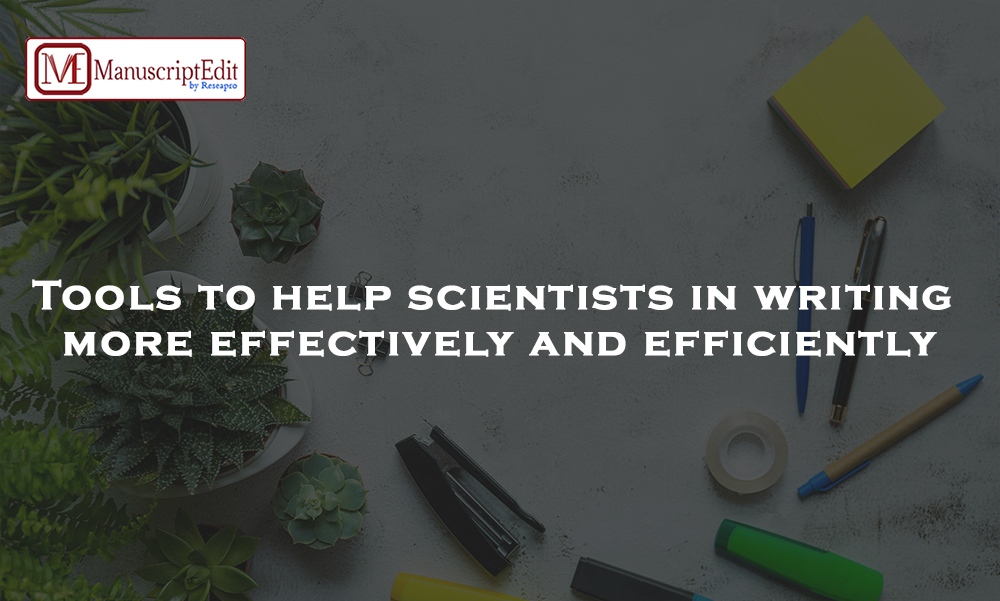Writing scientific journals, reports, and research papers is a complicated process and can be daunting for many scientists. Expressing thoughts, ideas, and results clearly and concisely can be difficult. However, with the evolution of technology and communication, there are a host of tools now available to help make this tedious task easier and more efficient. Some of them are:

- Style Guides
These are one of the primary tools to help aid scientific writing. Consistent formatting, punctuation, and term usage are essential for accuracy and clarity. These guides provide a quick resource for authors to double-check their usage and make sure their writing is polished and professional. For example, the Council of Science Editors offers a full Style Manual that is a great resource to have at hand while writing.
- Editing and Grammar Checkers
These are other popular tools used in writing. Microsoft Word and other text processing software include programs such as spell check and Grammarly. Both tools are beneficial to ensure that the information presented is correct and consistent. While not perfect, they help identify potential errors in sentence structure, word choices, and spelling variations.
- Reference Manager
It is another effective tool to help speed up writing. These software programs store references in one central location and help keep track of all the relevant literature. Examples of these programs include Zotero, EndNote, and Mendeley, which provide researchers quick and easy access to all the sources of information needed to write the article.
- Thesaurus
A thesaurus is also a helpful tool that assists researchers in finding specific words to explain their data. It is a great resource for expanding a scientist’s vocabulary, allowing them to communicate information more descriptively and accurately.
- Layout and Design Tools
Writing specifically for a scientific journal requires an understanding of layout and design, which can also be achieved through available tools. Adobe Creative Suite and other software packages provide a range of features that help organize data into effective visual aids. Graphs, tables, figures, and illustrations can be created with these programs that make the concepts easier to understand and comprehend.
- Search Engine Optimization (SEO)
SEO is important for publishing scientific documents on the web. It helps attract readers to the content and helps easily filter documents for a specific query or research study. SEO writing also improves the visibility of documents by providing keyword-rich information that is crucial for indexing on huge databases such as Google Scholar and PubMed.
Conclusion
In conclusion, using modern tools can make writing scientific journals, reports, and research papers easier, faster, and more efficient. Writers need to become proficient in the tools to help facilitate their writing process and create the best quality work. Each tool has its own unique purpose and is imperative to achieving a final coherent and successful product.
Do try these tools and leave a reply about your experience in the comment box. For more such useful content, please visit our website https://www.manuscriptedit.com/. Mail us your queries at support@manuscriptedit.com.

